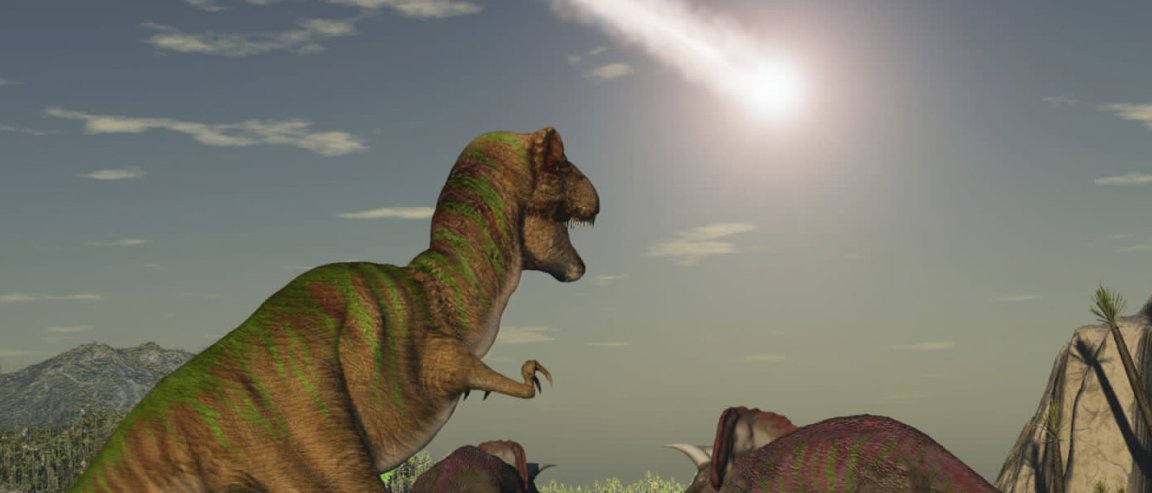
Researchers from University of Reading in the UK say the dinosaurs would still be extinct even without the Chicxulub impact. Using statistical analysis and fossil record data, the team found that more than a hundred million years ago, certain species were dying off faster than they could reproduce—several million years before the Chicxulub collision. This contradicts the belief that dinosaurs were wiped out solely by the meteorite collision.
Lead researcher Manabu Sakamoto says, “while the asteroid impact is still the prime candidate for the dinosaurs’ final disappearance, it is clear that they were already past their prime in an evolutionary sense.”

However, not everyone agrees. University of Edinburgh paleontologist Stephen Brusatte says, “it may be that the effects of the asteroid were a bit worse because you had dinosaurs that maybe weren’t as strong in an evolutionary sense as they once had been. But I think if there was no asteroid you would still have dinosaurs around today.”
The research, which was published in the current issue of the Proceedings of the National Academy of Sciences, suggests the dinosaurs began their decline some 40 million years before their eventual extinction (i.e., about 100 million years ago), and that their inability to replace extinct species with new ones contributed to their susceptibility to the K-T Event.
But don’t worry—dinosaurs of a sort do remain, in the form of our fine feathered friends.